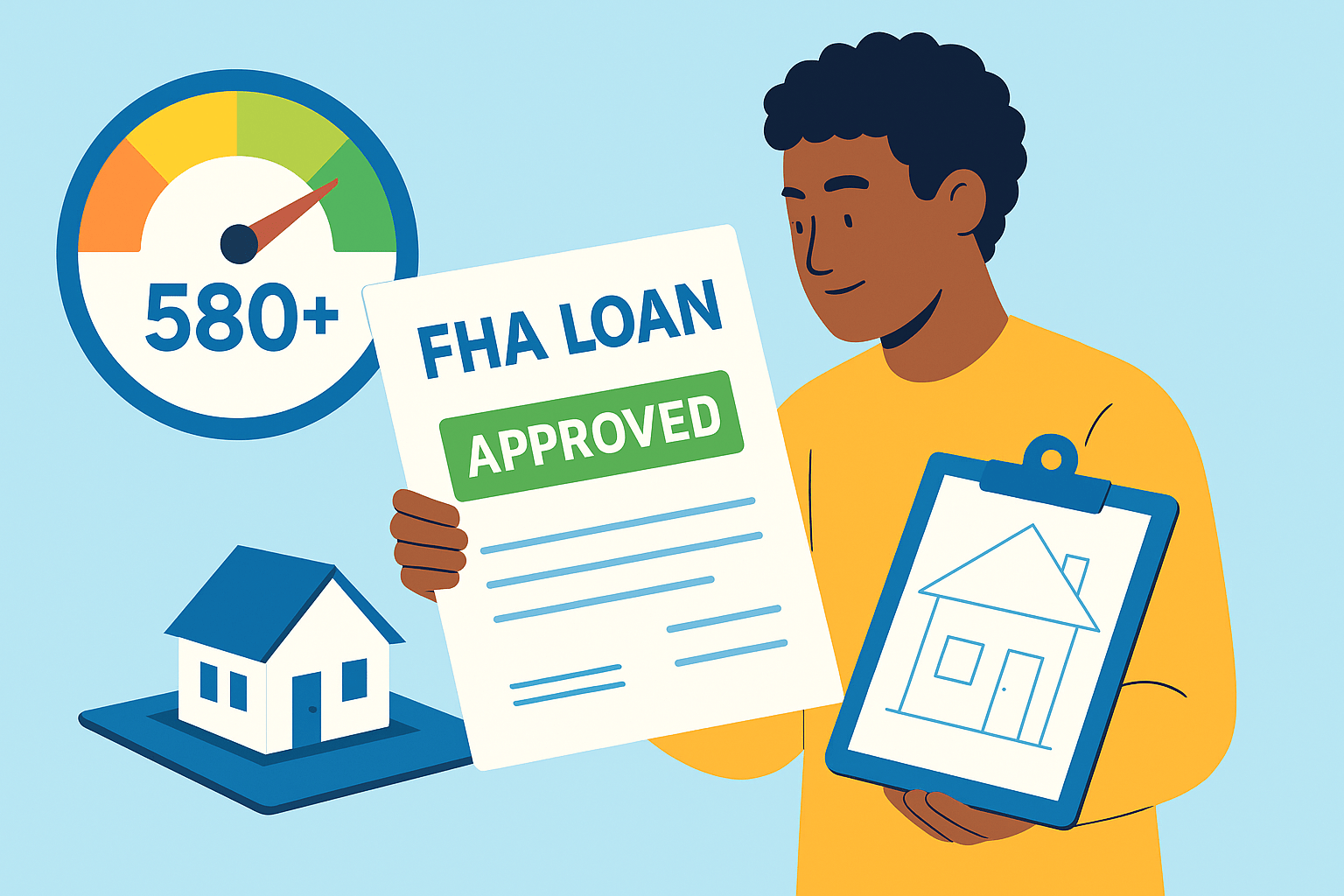Kentucky Home Buyer Tax Credit (MCC) First-Time Homebuyer Assistance Programs
Kentucky Home Buyer Tax Credit (MCC): The 2024 Guide Every First-Time Buyer Needs
Imagine turning April’s tax bill into a down-payment booster. That is precisely what the Kentucky Home Buyer Tax Credit (MCC) can do for qualifying first-time homeowners. In short, the Mortgage Credit Certificate issued by Kentucky Housing Corporation (KHC) lets you claim a percentage of your annual mortgage interest—up to $2,000—as a direct federal tax credit. Lower taxes mean more cash flow, and more cash flow means a smoother first year of ownership.
Why Talk Taxes When Shopping for a House?
The average Kentucky starter home sold for roughly $210,000 in early 2024, up 4 % year-over-year, according to local MLS data we crunched. Mortgage rates may fluctuate, but monthly payments remain a budget cornerstone. A dollar saved in tax is a dollar you can redirect to principal, furniture, or that inevitable post-closing “uh-oh” repair. The MCC serves as a quiet financial co-pilot—one that rides with you for the life of the loan, not just at closing.
How Does the Kentucky Home Buyer Tax Credit (MCC) Work?
The program sounds mysterious, yet the mechanics are refreshingly simple:
- A certificate, not a check. At closing, KHC issues a Mortgage Credit Certificate. This document authorizes you to claim a tax credit equal to up to 25 % of your annual mortgage interest (capped at $2,000).
- Annual federal savings. Apply that credit on IRS Form 8396 each year. Because it is a credit—not a deduction—it reduces your tax bill dollar-for-dollar.
- Long-term benefit. You keep claiming the benefit for as long as the home remains your primary residence and the mortgage is in place—often 20-30 years.
- Immediate payoff. Many buyers adjust their W-4 withholdings after closing, gaining extra take-home pay each paycheck.
Think of the MCC as an “interest rebate” that arrives every April.
Real-Life Snapshot: Julissa & Marco in Bowling Green
Julissa, a nurse, and Marco, an automotive technician, bought their first house for $198,000. Their 6.4 % fixed rate loan generates about $12,000 in first-year interest. With the Kentucky Home Buyer Tax Credit (MCC), they capture 25 % of that interest, translating to a $2,000 federal tax credit. They adjusted their payroll withholding and unlocked roughly $165 more per month. That extra cash now pays for childcare and a quickly growing deck-garden hobby.
Who Qualifies for the Kentucky MCC Program?
The eligibility list is shorter than many assume.
- First-time buyer rule. You cannot have owned a principal residence in the past three years unless you purchase in a federally targeted county or qualify as a military veteran.
- Income limits. For 2024, household income must generally fall below $99,960 in non-targeted areas for families of three or more. Targeted counties run higher. (KHC updates these caps annually.)
- Purchase-price caps. The home’s price must not exceed $375,000 in most counties—again, a higher ceiling applies in targeted zones.
- Owner-occupancy pledge. The property has to be your primary residence within 60 days of closing.
Quick tip: Many buyers think their student-loan debt disqualifies them. It does not. Creditworthiness matters for your mortgage approval, but the MCC focuses on income and purchase price.
How Much Can I Save with the Mortgage Credit Certificate in Kentucky?
Let’s crunch the numbers on three example price points:
| Home Price | Loan/Interest (Year 1) | 25 % Credit | Estimated Annual Savings |
|---|---|---|---|
| $180,000 | $9,600 | $2,000* | $2,000 |
| $250,000 | $13,450 | $2,000* | $2,000 |
| $310,000 | $16,700 | $2,000* | $2,000 |
*Credit capped at $2,000 annually under federal rules.
Even when interest totals exceed $8,000, the $2,000 ceiling sticks. Over a 30-year amortization, however, the credit can surpass $40,000 in lifetime tax savings. That is like scoring a no-strings college fund simply for buying a home.
Step-by-Step: Securing Your Kentucky Home Buyer Tax Credit (MCC)
- Work with an approved lender. Not every bank participates. Ask up front.
- Complete home-buyer education. KHC requires a HUD-approved course—often free and online.
- Provide income & asset docs. Think W-2s, pay stubs, tax returns.
- Reserve your MCC. Your lender submits Form MRB-1 to KHC; a non-refundable fee (around $200) locks it in.
- Close the loan. The certificate arrives with your closing package.
- File IRS Form 8396 each year. Keep a copy of the MCC for your tax preparer. DIY? Popular e-file software now supports Form 8396.
Combining the MCC with Other Kentucky Assistance Programs
Stacking benefits is not only allowed; it is encouraged.
- Down Payment Assistance (DAP): KHC offers $10,000 at 3.75 % over 10 years, or $6,000 at 1 % for income-qualified borrowers. Both options pair seamlessly with the MCC.
- Rural Development 502 Guaranteed Loan: USDA zero-down financing plus the Mortgage Credit Certificate equals $0 at closing + $2,000 every April.
- VA Loans: Honorably discharged veterans can waive the first-time buyer rule while using their VA benefit and the MCC concurrently.
Hidden Advantage: Debt-to-Income Ratio Boost
Lenders are allowed to “gross-up” the tax credit, adding up to $166 per month to your qualifying income. That extra padding can nudge borderline borrowers into approval territory. Talk about a double win—borrow more safely and save taxes later.
Downsides & Misconceptions (Read This Before You Apply)
No program comes without caveats. Let’s keep you out of trouble:
- Recapture tax. Sell the home within nine years and your income spikes? You may owe a portion of the benefit back. Thankfully, fewer than 2 % of Kentucky MCC holders ever trigger recapture, according to internal KHC surveys. Plus, federal law caps liability at 50 % of realized gain.
- Refinancing resets. You must re-apply for a reissued MCC if you refinance. There is a small fee, but skipping it voids the credit.
- Paperwork discipline. Lose the certificate and you’ll spend hours begging your lender for copies during tax season. Scan it to the cloud on day one.
What Happens If Mortgage Rates Drop?
Let’s say rates fall two points and you refinance. The IRS lets you request a “reissued MCC” through your lender. Your credit percentage remains, but savings could shrink slightly because interest costs decline. Even so, a lower payment plus any tax credit nearly always beats your original loan.
Smart Strategies to Maximize the Kentucky Home Buyer Tax Credit (MCC)
- Adjust payroll early. Do not wait for refund season. Use IRS Form W-4 and cut withholdings by your expected credit divided by pay periods.
- Track interest annually. Form 1098 from your lender lists interest paid. Cross-check the numbers—software sometimes mis-ports them.
- Revisit budget. Channel the extra monthly cash to a high-yield emergency fund or pay principal bi-weekly.
- Consult a tax pro. First year? Hire someone. After that, most DIY software handles it, but accuracy matters.
- Stay informed. Income and price limits adjust each spring. Subscribe to KHC newsletters or set a calendar reminder.
Frequently Asked Questions
Can I combine the MCC with FHA loans in Kentucky?
Yes. FHA, Conventional, USDA, and VA are all compatible.
Does the credit phase out after a certain income level once I own the home?
No. Income limits apply only at the time of MCC issuance.
What if I move out but keep the property as a rental?
The credit stops the year you move; you cannot claim it on non-owner-occupied property.
Is the $2,000 cap ever indexed for inflation?
Not currently. Congress has kept the ceiling constant since 1998.
Ready to Unlock Years of Tax Savings?
The Kentucky Home Buyer Tax Credit (MCC) transforms home-ownership math in ways that rebates and grants cannot. By lowering your federal tax bill—year after year—it builds a financial buffer that too many new owners lack. The sooner you secure your certificate, the sooner you can redirect tax dollars toward building equity, knocking down debt, or simply enjoying Louisville’s food scene.
Next step: Talk to an approved KHC lender today, request an MCC reservation, and let the IRS help pay for your Kentucky dream home.
Explore More Blog Posts
Checkout more similar posts those will help you to choose better property.












 Profile
Profile Password
Password Saved Properties
Saved Properties Sign Out
Sign Out
 +0.01
+0.01
 -0.15
-0.15

